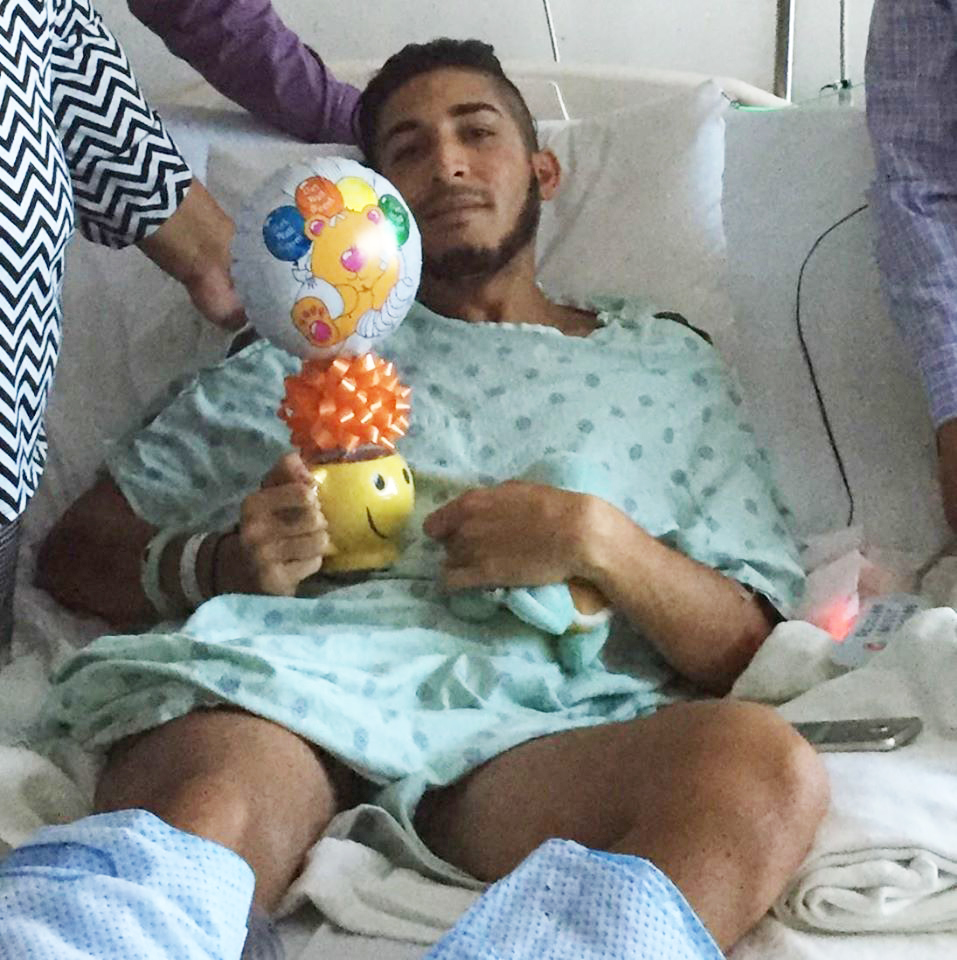
In his sleep, Norman Casiano still hears the cackling of a gunman reloading his assault rifle, and the panicked pleas of fellow club-goers begging for their lives as bullet rounds dropped to the bloody floor.
One-hundred days after the worst mass shooting in modern U.S. history, the 26-year-old survivor said his memories constantly play out in nightmares. Five of Casiano’s close friends were killed when Omar Mateen opened fire inside Pulse, a popular gay nightclub in Orlando, killing 49 people.
“Everything that I saw is relived in a dream. I can feel everything all over again. I can smell gunpowder and taste blood. I don’t see his face but I do hear his laughter. It’s a perfect imagery of that night,” he told TIME on Tuesday. “It’s still fresh all the time. I can’t escape.”
Orlando as a whole is still very much in the midst of recovering from the “most horrific day” the city has ever seen, but the tragedy also unified the city, Orlando Mayor Buddy Dyer said in a statement this week. “Minds and hearts have been opened and the world has seen the Orlando that we all know and love,” he said.
Since the shooting, donors have raised more than $26 million for the victims, which will start being distributed soon. And Orlando Police Chief John Mina said the police department saw a “huge increase” in applications to be officers after the Pulse shooting, which he says shows the resiliency in the city’s residents.
“We’ll bounce back stronger than ever,” Mina said.
For Casiano, though, the healing process has not been straightforward. Casiano was shot twice in the back as he and more than two-dozen people hid from Mateen inside a bathroom stall. He has been taking medication to help him sleep since the June 12 massacre, but when he closes his eyes, he lands back into the most terrifying moment of his life.
“I hear panic and pandemonium. I hear the gun being reloaded and the bullets falling on the floor,” he said. Among the noises is the gunman’s “evil” laughter.
“It was a satisfactory laugh like I’m doing what I came here to do,” Casiano said, adding that the pleas from Mateen’s victims only “made him feel more empowered.”
The nightmares are part of Casiano’s new life—a life that involves frequent visits to his doctor, therapist and psychiatrist. Sleepless nights are part of his current “new normal,” but he’s “trying to come to peace” with it.
“The life I had before is not really going to be that life anymore,” he said. “I wish I was like the rest of the world—seeing it from the outside. I hate that it’s mental and physical. But I thank God that I’m here and that I’m alive.”
Casiano, an aspiring makeup artist, was out of the hospital after two days, but he’s been learning how to walk again and how to deal with the persistent pain. When he first returned home, Casiano found himself sleeping in his parents’ bed.
“The bullet wounds healed on the outside, but the damage on the inside is still healing. It hurts a lot,” he said. “I say it all the time that it feels like it just happened, and sometimes it feels like it’s been way longer.”
The feeling is the same for families who lost their loved ones.
Juan Ramon Guerrero, whose 22-year-old son of the same name was killed in the rampage, said the way he handles his grief varies by the day.
The 61-year-old father recently returned to work as a driver for a car service company after taking time off to mourn. “I continue my life, but it’s hard,” he said. “That kind of pain is just hard to deal with that. It’s different every day.”
Guerrero said he celebrates Mass in church on every 12th day of the month, and plans to do so for 12 months straight, to remember his son. “It’s not easy,” he said. “Sometimes it comes back to you and it’s hard.”
More Must-Reads from TIME
- How Donald Trump Won
- The Best Inventions of 2024
- Why Sleep Is the Key to Living Longer
- Robert Zemeckis Just Wants to Move You
- How to Break 8 Toxic Communication Habits
- Nicola Coughlan Bet on Herself—And Won
- Why Vinegar Is So Good for You
- Meet TIME's Newest Class of Next Generation Leaders
Contact us at letters@time.com